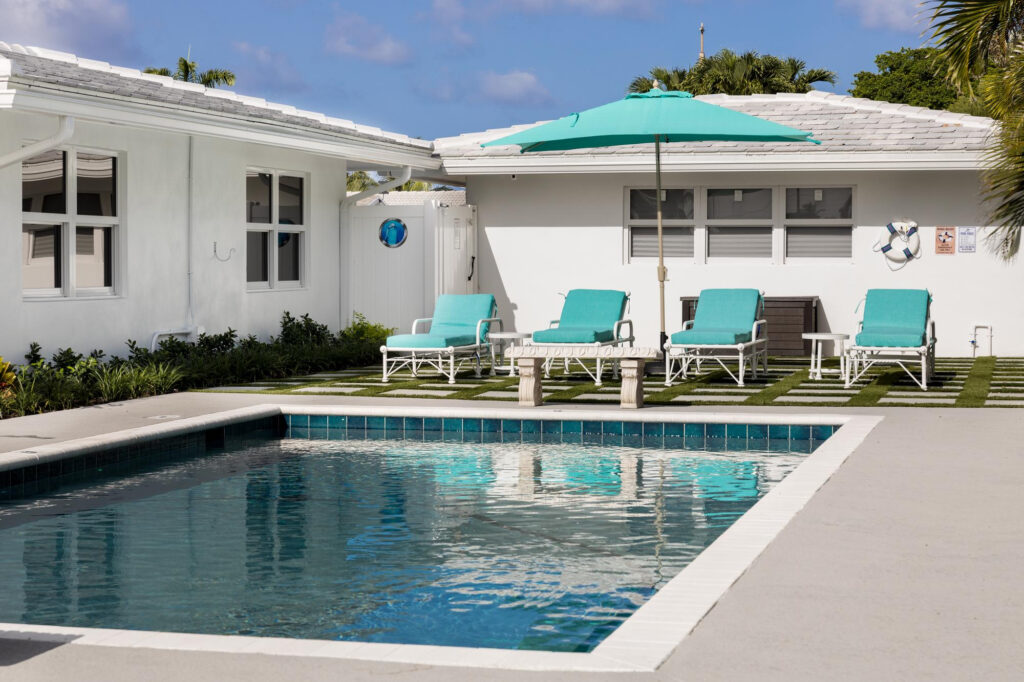Reducing Odors and Irritation with Proper Chemical Balance
Discover how maintaining the proper chemical balance in your pool can significantly reduce odors and irritation for a more enjoyable swimming experience.
Maintaining a pool is more than just ensuring its aesthetic appeal; it’s also about ensuring a safe and pleasant swimming experience. One of the crucial aspects of pool maintenance is achieving the right chemical balance. When chemicals are properly balanced, swimmers can enjoy a refreshing swim without suffering from skin irritation or unpleasant odors. In this blog post, we will delve into how proper chemical balance helps reduce odors and irritation in pools, explore the essential chemicals involved, understand the consequences of imbalance, and provide practical tips for maintaining a healthy swimming environment.
The Importance of Chemical Balance in Pools
Understanding the importance of chemical balance is the foundation of effective pool management. A balanced pool not only enhances the swimming experience but also prolongs the life of pool equipment and surfaces. Here are some key points highlighting its importance:
- Prevention of Algae Growth: Proper chemical balance helps to prevent algae blooms, which can lead to foul odors and an unpleasant swimming environment.
- Skin and Eye Comfort: Balanced pH levels protect swimmers from skin irritations and eye redness, allowing for a comfortable swim.
- Water Clarity: The right levels of chlorine and pH contribute to clear water, enhancing the visual appeal of your pool.
- Equipment Longevity: Chemical imbalances can corrode pool equipment, leading to costly repairs and replacements.
By maintaining a proper balance of chemicals, pool owners can ensure a safe and enjoyable experience for all swimmers while minimizing maintenance costs.
Key Chemicals in Pool Maintenance
There are several key chemicals involved in maintaining the proper chemical balance in pools. Understanding these chemicals and their roles can help pool owners make informed decisions about pool care:
- Chlorine: This is the primary disinfectant used to eliminate harmful bacteria and pathogens in pool water. It also helps in breaking down organic materials that can cause odors.
- pH Level: The pH level measures the acidity or alkalinity of the water. A balanced pH (between 7.2 and 7.8) is crucial for swimmer comfort and effective chlorine performance.
- Alkalinity: Total alkalinity acts as a buffer for pH levels. It helps stabilize the pH and prevent fluctuations.
- Calcium Hardness: This affects the water’s corrosiveness and scale formation. Balanced calcium levels help protect pool surfaces and equipment.
- Stabilizer (Cyanuric Acid): This chemical protects chlorine from being broken down by sunlight, ensuring its effectiveness.
Maintaining the right levels of these chemicals is vital for a pleasant swimming experience. Regular testing and adjustments will help keep the pool water safe and inviting.
Consequences of Chemical Imbalance
A chemical imbalance can lead to a myriad of problems affecting both pool maintenance and swimmer comfort. Here are some potential consequences:
- Odors: When chlorine levels are too low or too high, it can lead to the formation of chloramines, which produce a strong chlorine smell. This can deter swimmers and contribute to an unpleasant pool environment.
- Skin and Eye Irritation: A pH level that is too high or too low can cause irritation for swimmers, leading to discomfort and potential allergic reactions.
- Corrosion: Low pH levels can corrode metal components of the pool, leading to costly repairs and replacements.
- Cloudy Water: An imbalance in alkalinity or calcium hardness can lead to cloudy water, diminishing the aesthetic appeal of the pool.
These issues highlight the importance of regular chemical testing and adjustment, ensuring a safe and pleasant swimming environment for all users.
Practical Tips for Maintaining Chemical Balance
Maintaining a proper chemical balance requires diligence and knowledge. Here are some practical tips for pool owners to follow:
- Regular Testing: Use a reliable testing kit to check pH, chlorine, alkalinity, and calcium levels at least once a week. This will help identify imbalances early on.
- Adjust Gradually: When making chemical adjustments, do so gradually. Large, sudden changes can shock the system and lead to further imbalances.
- Use Quality Chemicals: Invest in high-quality chemicals from reputable suppliers to ensure effectiveness and safety.
- Monitor Environmental Factors: Factors such as heavy rainfall, high temperatures, and pool usage can affect chemical levels. Adjust accordingly based on these factors.
- Educate Yourself: Learn about the basics of pool chemistry to make informed decisions about maintenance. Consider taking a training course, such as Pool Routes Training, to enhance your knowledge.
By incorporating these practices into your routine, you can effectively maintain a balanced pool that is enjoyable for all swimmers.
Real-World Examples of Chemical Balance Impact
Understanding the implications of proper chemical balance can be reinforced through real-world examples. Pools that are neglected in terms of chemical maintenance often face significant challenges:
For instance, a community pool that was consistently tested and maintained enjoyed a vibrant swimming environment. Swimmers reported no irritation, and the water remained crystal clear throughout the summer. In contrast, a neighboring pool that neglected regular testing faced numerous complaints about odors and discomfort, leading to reduced patronage.
Additionally, many pool maintenance professionals have shared stories of how implementing a strict chemical maintenance regimen not only improved swimmer satisfaction but also reduced their workload significantly. These anecdotes highlight the tangible benefits that come from prioritizing chemical balance in pool management.
Conclusion
In summary, reducing odors and irritation in pools is largely dependent on maintaining a proper chemical balance. Key chemicals such as chlorine, pH, alkalinity, and calcium hardness play vital roles in ensuring a safe and pleasant swimming experience. By understanding the importance of chemical balance, recognizing the consequences of imbalance, and implementing practical maintenance tips, pool owners can create a welcoming environment for swimmers. Remember, regular testing and adjustments are the keys to success.
As you navigate the world of pool maintenance, consider reaching out to professionals for assistance and guidance. For those looking to enter the pool service industry, explore the options available through Pool Routes For Sale to get started on your journey today!



